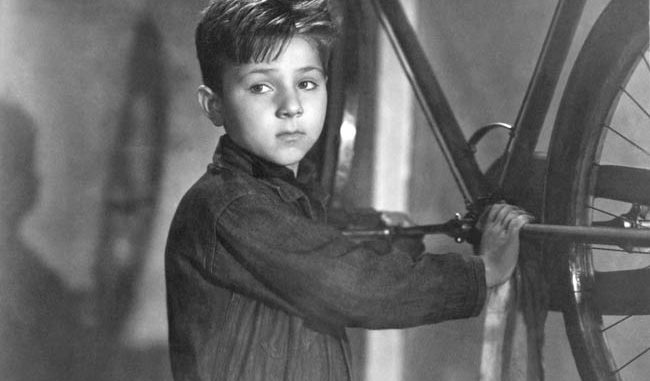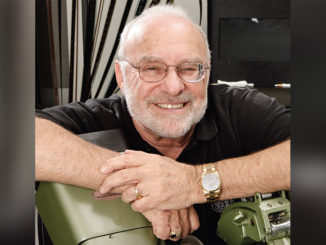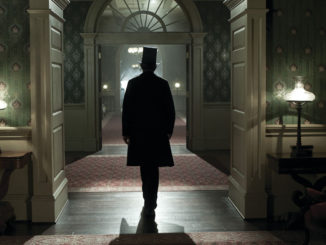
by Hans van Riet
Growing up in The Netherlands, I was still in elementary school when I saw a television production truck in full operation. I stuck around and watched on a monitor how the images from the cameras were combined into a sequence that told the story of the scene, which unfolded on the set before me. The whole process fascinated me and I knew immediately that I wanted to be part of it. After I found out that it was common in my country to combine the functions of videotape editor and technical director, I made it my quest to become an editor.
A few years later, I was fortunate enough to find a mentor in Peter Rump, a prominent Dutch videotape editor who taught me everything he knew about television and film, made me read many books (James Monaco’s excellent How to Read a Film comes to mind), and allowed me to shadow him for over two years. I earned a living as a sound engineer then, so there was little free time to spare. But Peter made me go to late-night showings of movies he considered to be masterpieces. Whenever there was a retrospective of a director or a genre, he’d urge me to go see as many movies as possible.
On one of these occasions, Peter introduced me to Italian Neorealism. Among movies made by Roberto Rossellini and Lucino Visconti, I watched Vittorio de Sica’s Ladri di Biciclette (The Bicycle Thief) in awe. This story starts in post-war, poverty-stricken Rome, where the unemployed Antonio Ricci (in Neorealist tradition played by a nonprofessional actor) gets a chance at a city job, under the condition that he has a bicycle. Antonio’s bike is pawned, but his wife Maria decides to pawn their bed sheets in order to get the bicycle from the pawnbroker.
Maybe I was just impressionable in those formative years, but the movie’s seeming simplicity appealed to me. It broadened my horizons and I started watching movies from a different perspective. For me, viewing this movie marks the start of my career.
Remarkably, De Sica doesn’t waste any time on setting the scene or on the family’s backstory in this act. He deems the viewer intelligent enough to take clues from the allegories he provides, and doesn’t take refuge in a voiceover. The apartment where Antonio lives is in disrepair and doesn’t have running water. When he is offered a job, there is a crowd of unemployed workers. And when the bed linen is handed over to the pawnbroker, the camera follows the clerk and reveals thousands of similar packages. The Ricci family is not the exception; they’re just part of a war-ravaged, poor society.
When Antonio goes to work the next morning, his bike is stolen. He realizes that without it he will be out of work again soon, and he has no other option than to try to recover it. Together with his young son Bruno, he starts a frantic search through the streets of Rome to retrieve his prized possession. De Sica clearly explores ancient legends here. The quest for the bicycle has an odyssey structure, whereas the abandonment of his son on the banks of the Tiber reminds us of Romulus and Remus.
After a fruitless day, Antonio and Bruno arrive at the soccer stadium where the game is about to end. When the fans leave the stadium and mount on hundreds of bikes, it becomes too much for Antonio. As he sits down on the curb and cradles his head in despair, the director taunts him even more by having a group of cyclists cross the frame while the camera dollies in on the unfortunate father.
Finally, Antonio comes to the inevitable conclusion: He has to steal a bicycle himself in order to survive. After a botched attempt, he is being let off easily. He disappears with his son in a crowd of nameless individuals. Antonio had a chance to stand out and make a difference for his family, but society wouldn’t let him. De Sica’s moral is simple and a recurring one in Neorealist cinema: One cannot alter one’s destiny.
Maybe I was just impressionable in those formative years, but the movie’s seeming simplicity appealed to me. It broadened my horizons and I started watching movies from a different perspective. For me, viewing this movie marks the start of my career.
Although I’ve never aspired to make a movie, I feel that all those countless hours watching movies and analyzing blocking, shots, editing, dialogue and music have made me a better storyteller today. All those principles apply––whether you’re making a half-hour game show or a feature-length drama. I have to thank my mentor Peter for all the hours he spent making me aware of that––and for all the doors he opened. Having a mentor this involved is by far the best way to get started in the business.
Maybe Neorealist cinema was wrong after all. You can alter your destiny; you just have to find the right person to help you do it.





